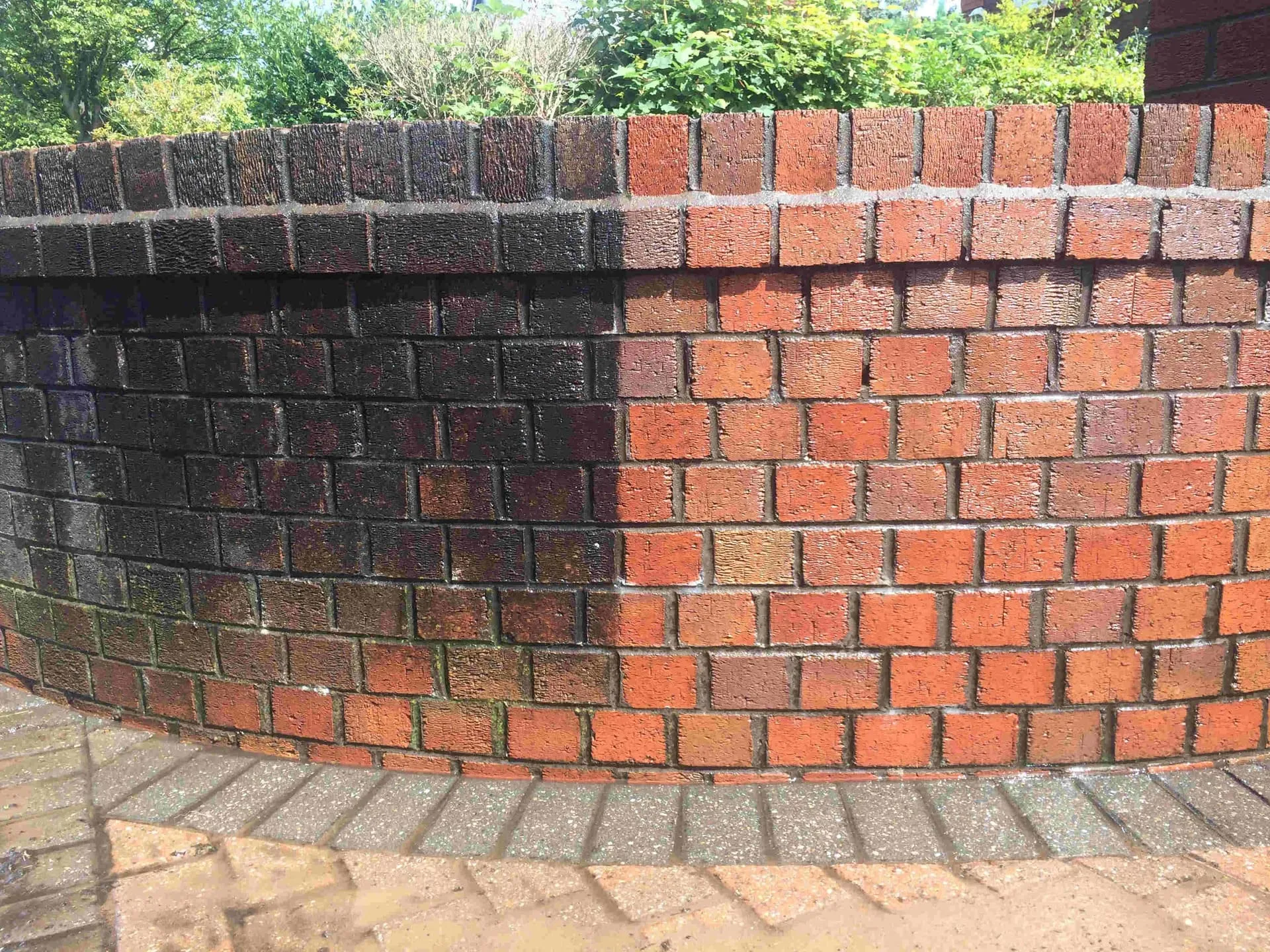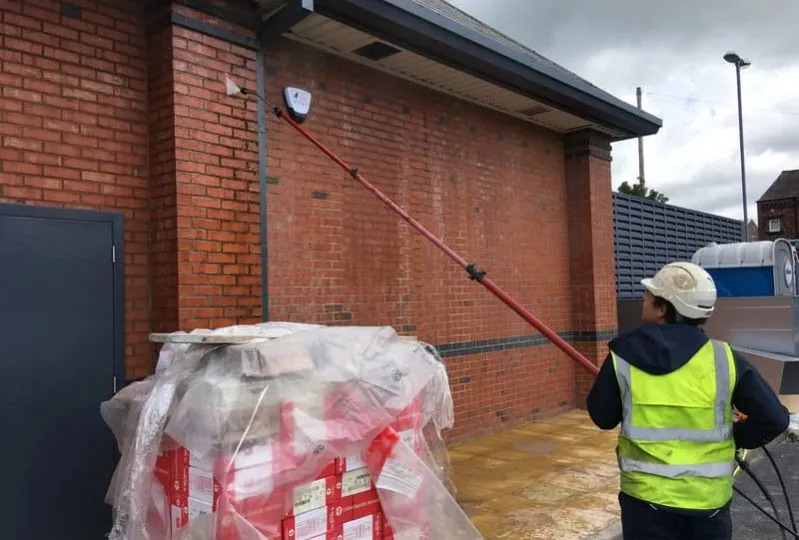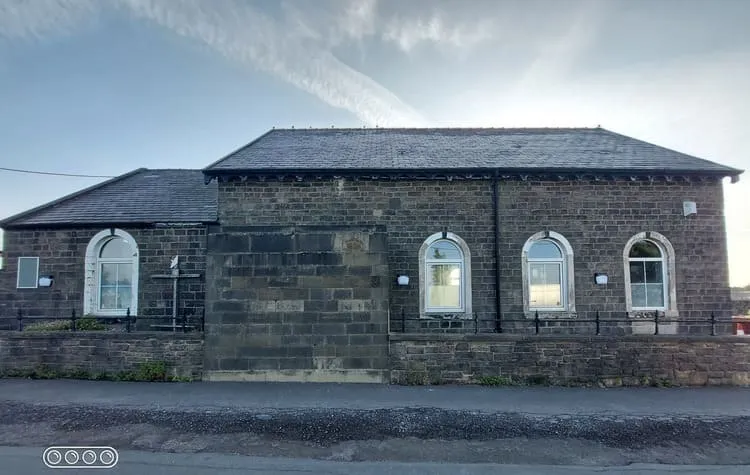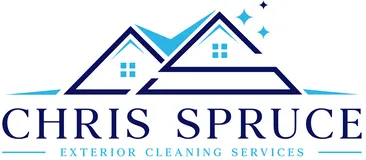DIY vs Professional Brick Cleaning: What Homeowners Should Know
When brickwork starts showing signs of wear — discolouration, moss, or pollution staining — it’s natural to wonder if a quick DIY clean will do the trick.
In some cases, it might. But not all stains are equal, and not all cleaning methods are safe for every brick. Before you decide how to tackle the job, here’s a breakdown of what homeowners should know about DIY vs professional brick cleaning.

Understanding the Core Differences
| Factor | DIY Cleaning | Professional Cleaning |
|---|---|---|
| Tools/Equipment | Basic household tools, brushes, garden hose, bleach, mild acids | Specialist equipment like DOFF, TORC, soda blasting, steam systems |
| Skill Required | Low to moderate | High – requires technical knowledge and experience |
| Scope | Light cleaning, small areas | Heavy staining, large surfaces, historic buildings |
| Time Investment | High – more manual effort | Efficient, typically completed faster |
| Safety Risk | Higher for untrained users handling chemicals or working at height | Risks managed by trained professionals |
| Cost | Low upfront cost | Higher cost, but includes labour, tools, and safety measures |
| Risk of Damage | High if incorrect method is used | Low – pros match methods to brick types |
What DIY Brick Cleaning Can (and Cannot) Handle
Appropriate for DIY:
- Surface-level dirt or dust
- Light moss or algae growth
- Efflorescence that can be removed with brushing and water
- Small, non-historic garden walls or patios
Not Suitable for DIY:
- Historic, fragile, or soft handmade bricks
- Paint or graffiti removal
- Deep staining (for example, rust)
- Large facades or hard-to-reach areas
- Bricks with loose or damaged mortar
Improper DIY techniques—like using wire brushes, high-pressure washers, or acid-based solutions without knowledge—can damage bricks irreversibly.
Soft bricks, in particular, are highly vulnerable to abrasion or acid etching.
Common DIY Cleaning Methods
Water + Brush Method
Uses soft brushes and clean water
Suitable for
Dust, surface-level dirt
Risks
Minimal; may be ineffective on deeper grime
Soap or Detergent
Mild solution to remove algae and light stains
Best for
Light organic growth
Risks
Residue if not rinsed properly
Bleach Solution
1:10 diluted household bleach to treat algae/moss
Best for
Works on biological growth
Risks
Harmful to plants and skin; PPE required
Acid-based Cleaners
Muriatic (hydrochloric) acid or brick acid
Best for
Mortar stains or efflorescence
Risks
Dangerous to handle; can etch or discolor brick
Acid cleaning is especially risky. If used incorrectly, it can degrade mortar joints, cause brick spalling, or create long-term discolour-ation. Moreover, legal restrictions may apply to how such chemicals are disposed of.
Professional Brick Cleaning Methods
Professional services have access to methods and tools not available to the general public. These are carefully chosen depending on the brick type, condition, and nature of the staining.
| Method | How It Works | Use Case | Requires Specialist? |
|---|---|---|---|
| DOFF (Superheated Steam) | Delivers steam at 150°C with low pressure | Organic staining, biological growth, heritage surfaces | Yes |
| TORC (Gentle Abrasive System) | Uses swirling fine granulate (calcite) in water and air stream | Paint, carbon deposits, historical restoration | Yes |
| Soda Blasting | Propels sodium bicarbonate under controlled pressure | Paint removal, surface cleaning | Yes |
| Acid Washing (Controlled) | Diluted acid application with neutralisation steps | Mortar smear, rust stains | Yes |
| Low-pressure Jet Washing | Controlled water pressure with surfactants | General heavy dirt | Yes, if large scale or sensitive brick |
These techniques are often used in conservation work where preserving the brick’s surface and patina is essential. For example, DOFF cleaning is frequently recommended by Historic England for use on listed buildings.


Safety, Environmental, and Legal Considerations
1. Chemical Handling and Disposal
- DIY users overlook regulations surrounding acid disposal.
- Many councils restrict washing chemicals from entering storm drains.
- Professionals are licensed to handle and dispose of chemical waste safely.
2. Physical Safety
- DIY cleaning on walls or chimneys may require ladders or scaffolding.
- Professionals work with proper access systems and fall protection.
3. Impact on Surroundings
- Chemical splashes can kill plants or damage adjacent stonework, metals, or paintwork.
- Pros use containment sheeting, runoff capture, and masking techniques.
4. Heritage or Listed Properties
- Cleaning methods for listed buildings often require local authority or conservation approval.
- Professional cleaners may work in compliance with BS 8221 standards for building conservation.
Costs: DIY vs Professional
| Item | DIY Cost Estimate | Professional Cost Estimate |
|---|---|---|
| Basic materials (soap, bleach, brush) | £10–£50 | – |
| Acid cleaner kit (including PPE) | £40–£100 | – |
| Scaffold or tower hire (if needed) | £100–£300/day | Included |
| DOFF or TORC cleaning | – | £200–£800+ depending on area size |
| Graffiti or paint removal | – | £250–£800+ |
| Full exterior wall clean (2-storey house) | – | £500–£2000 |
Please Note: Prices are estimates and can vary significantly based on location, the size of the job, the complexity, and the current condition of the surfaces. It is always recommended to obtain multiple quotes for professional services.
DIY may seem cheaper initially, but hidden costs (like damage repair or tool hire) can offset savings. Additionally, a poorly done DIY job might require corrective work, increasing overall expense.
Potential Consequences of Incorrect Cleaning
- Brick surface erosion from wire brushes or power washers
- Mortar joint deterioration, allowing moisture ingress
- Efflorescence worsening from improper acid use
- Water damage inside walls due to forced pressure or incorrect rinsing
- Warranty voidance on certain coatings or structural systems
Our team at Chris Spruce Cleaning Services Ltd offers expert, insured brick cleaning across Cheshire. Get your quote today!


Enquire about Brick Cleaning Service here
Decision-Making Guide: DIY or Hire a Professional?
Use this checklist to evaluate which route is appropriate:
| Question | If "Yes", Consider: |
|---|---|
| Is the brickwork older than 50 years? | Professional |
| Is the staining heavy or paint-based? | Professional |
| Is the wall above ground floor height? | Professional |
| Is there mortar decay or cracking? | Professional |
| Are you comfortable handling chemicals? | DIY possible |
| Is the staining light dirt or algae? | DIY possible |
| Is it a heritage or listed property? | Professional |
| Do you have time and tools? | DIY possible |
In the end,
If the job is small, straightforward, and your brickwork is in good condition, a cautious DIY approach may be sufficient. However, if you’re dealing with stubborn stains, ageing bricks, or a heritage property, hiring a professional cleaner is likely the wisest and the safest decision you can take. Don’t let short-term savings turn into long-term damage — choose the right method based on your property’s needs.
Professional brick cleaners bring expertise, specialised tools, and follow important safety and preservation rules. For older buildings, tough stains, or work that involves heights, it’s usually best to call in the pros.
A thorough, well-done cleaning—whether you do it yourself or hire someone skilled—can go a long way in protecting your home and boosting its curb appeal and value.

Connect with Chris Spruce
Meet the Founder: Committed to delivering exceptional results for every property in North-West!
– 20+ years of experience in exterior cleaning.
– Personally involved in every cleaning project to ensure 100% satisfaction.
What our Customers say
EXCELLENTTrustindex verifies that the original source of the review is Google. Chris did an outstanding job on our very tired and neglected garden. In one morning he transformed the place. I can't thank you enough. Very good service, punctual and polite. Thank you Chris, see you again soon!Posted onTrustindex verifies that the original source of the review is Google. Chris Spruce did a brilliant job cleaning the render on our house and the roof on our rental. He turned up on time, worked hard all day and left everything tidy. The render had gone black but now it looks as good as the day it was done. Really impressed and would definitely recommend him!Posted onTrustindex verifies that the original source of the review is Google. Chris is such a professional, with a great attention to detail. Our old imprinted concrete driveway has been meticulously cleaned, recoloured and then new resin applied. It looks fabulous. We are so pleased and have had so many people admiring the driveway. If you want a job done well, we highly recommend Chris.Posted onTrustindex verifies that the original source of the review is Google. Exterior cleaning of render on my house . It came up beautifully some heavy smoke stains on chimney removed all stains gone . Looks excellent. I was advised how to care for render and also what to do to try and stop stains recurring in the future . Very useful advice received. A very knowledgeable and friendly team worked hard and cleaned up nicely after they finished. I would highly recommend Chris and his team.Posted onTrustindex verifies that the original source of the review is Google. Chris did an excellent job , the render looks like new. Really responsive and no fuss , kept in touch with me all through the process. 3 months on since I had the work done at it’s still looking really good. I will be using Chris again when I need any more work doing.Posted onTrustindex verifies that the original source of the review is Google. Chris is a lovely guy arrives on time does a fantastic job. Have used him a few times now and will continue to use him to maintain our house.Posted onTrustindex verifies that the original source of the review is Google. Fantastic job by Chris and his team as always. Well recommended.Posted onTrustindex verifies that the original source of the review is Google. Amazing job, exceeded expectations. All with the minimum of disruption. Very professionalPosted onTrustindex verifies that the original source of the review is Google. Excellent friendly service. Job done thoroughly and quickly. I would fully recommend this contractor.Posted onTrustindex verifies that the original source of the review is Google. Chris has done an amazing job cleaning our resin driveway, it looks like new again. Chris also took the time to clean up our sandstone steps which must have had decades of grime. Fantastic job and Chris is a really lovely chap, friendly and hardworking and has given great advice for future maintenance. I would highly recommend him for any cleaning jobs.Verified by TrustindexTrustindex verified badge is the Universal Symbol of Trust. Only the greatest companies can get the verified badge who has a review score above 4.5, based on customer reviews over the past 12 months. Read more
